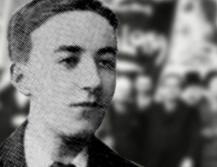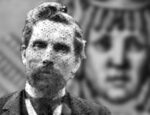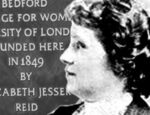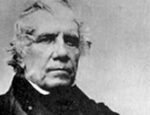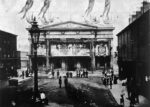Description
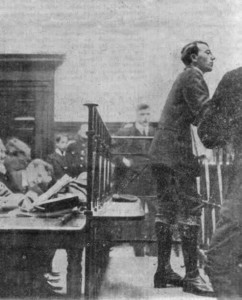 Behold the knickerbockers of Guy Aldred! son of a Naval lieutenant and factory girl, who transformed—in his own words—from ‘Anglican preacher-boy to Anarchist Socialist Impossibilist’. He is perhaps most famous now for his leading role in the campaign against the ban—enforced throughout the 1920s and overturned in 1932—of all forms of public speeches and meetings on the Green in Glasgow.
Behold the knickerbockers of Guy Aldred! son of a Naval lieutenant and factory girl, who transformed—in his own words—from ‘Anglican preacher-boy to Anarchist Socialist Impossibilist’. He is perhaps most famous now for his leading role in the campaign against the ban—enforced throughout the 1920s and overturned in 1932—of all forms of public speeches and meetings on the Green in Glasgow.
Aldred’s engagement with classics was never an end in itself. He used the classics for whatever purpose it might serve in informing his life as an activist. Given the opportunity he would openly eschew the cultural capital it might have afforded him. For example when he admitted that the Rev. George Martin, aka ‘The Saint of Southwark’, or ‘The Modern St. Anthony’, used to teach him ancient Greek on Saturdays, he saw himself as the ‘victim’ of Martin’s classicism and stated plainly that he had ‘no interest’ in Greek whatsoever.
His unequivocal rejection of Greek and classical culture in general was in line with his defiant rejection of contemporary social and cultural norms. As plain as his dismissal of classics is the debt to which he owed Greek and Roman thinkers and ancient history at formative times in his social awakening and political development.
His rapid journey from ‘Anglican Preacher-boy’ was triggered by a confluence of events in his teenage years remarkable for the concentration of classical learning. First, in 1904, came the intervention of his grandfather, a fishing tackle manufacturer, who – the evening after his grandson’s street pulpit had been stormed repeatedly by police, took it upon himself to introduce him to atheism:
“That night, on my return home, my grandfather went to his secret cupboard and produced a collection of Atheist pamphlets… My grandfather delighted in poetry and on the evening when he introduced me to the Atheist writings, he gave me a volume of Shelley and another of Byron. He told me the story of the Titan God, Prometheus. If I wished to serve mankind, he warned me, I must expect scorn and abuse. But, he continued, I must maintain my position with perfect sweetness. I must not permit persecution or neglect to make me bitter. He asked me to consider the lofty heroism, the enduring patience, the unselfish love, and the perfect sweetness in service, the tragic story of Prometheus inspired. He pointed the moral by dwelling, most effectively, on the lines:
To suffer woes which hope thinks infinite
To forgive wrongs darker than death or night;
To defy Power, which seems omnipotent;
To love, and bear; to hope till Hope creates
From its own wreck the thing it contemplates;
Neither to change, nor falter, nor repent;
This, like thy glory, Titan, is to be
Good, great and joyous, beautiful and free.”
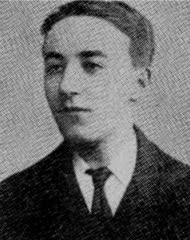 In the same year, Aldred avidly attended a series of Wednesday noon-day lectures delivered by a man called Septimus Buss (brother of Frances) on ‘The Religions of the World’. Lecture seven of the series ‘introduced the audience to the business-like religion of the Ancient Roman’ and series as a whole nourished his growing atheism and further supported his disenchantment with the Anglicanism of his boyhood.
In the same year, Aldred avidly attended a series of Wednesday noon-day lectures delivered by a man called Septimus Buss (brother of Frances) on ‘The Religions of the World’. Lecture seven of the series ‘introduced the audience to the business-like religion of the Ancient Roman’ and series as a whole nourished his growing atheism and further supported his disenchantment with the Anglicanism of his boyhood.
His spiritual and social mission became ever more atheistic from this point. Through the Rev. Charles Voysey he became deeply influenced by the stoic and pantheistic teachings of Zeno of Citium. He consequently became convinced of what he describes as an anti-religious theism: “The unconditional service of man defines conduct that must arise out of a life that is in absolute accord with the supreme harmony of the universe [or God].” Zeno’s teachings effectively gave him a means by which he could shift his evangelistic energies from the Christian God to socialism.
In 1923 Aldred, in his copious anarchist writings, frequently turns to the heroes of ancient history, alongside Napoleon and Jesus, as historical exemplars. For example, in an article on one of his pet topics of discussion, free love, entitled ‘History for Prudists’ he wrote:
“Julius Caesar is not thought less of because of his departure from [marital/amorous] convention: and Napoleon is not despised because of his obvious attachment to more than one person of the opposite sex… Fulvia, Antony’s neglected wife, was a much nobler person than Cleopatra, and possibly his second wife, Octavia, was also. Yet when Octavius Caesar insists upon burying Antony and Cleopatra together and paying military tribute to their illicit union, the worst moralist discovers no pious horror. Cleopatra remains famous and adored: Antony is remembered more by his love than by his patriotism. Which is probably right enough. When one can turn thus to all climes and times, to all creeds and races, and find record upon record of amours, the talk of “adultery” becomes drivel of the most appalling description. And if “adultery” is so evil how comes it that the most notorious adulterers rank as the greatest men of their time…”
Aldred lived life on the breadline, spending all his money in the active service of his fellow man. It was the present application of ancient history and philosophy, and no antiquarian interest whatsoever, that brought the ‘knickerbocker rebel’ and classical culture fleetingly into the same orbit.

